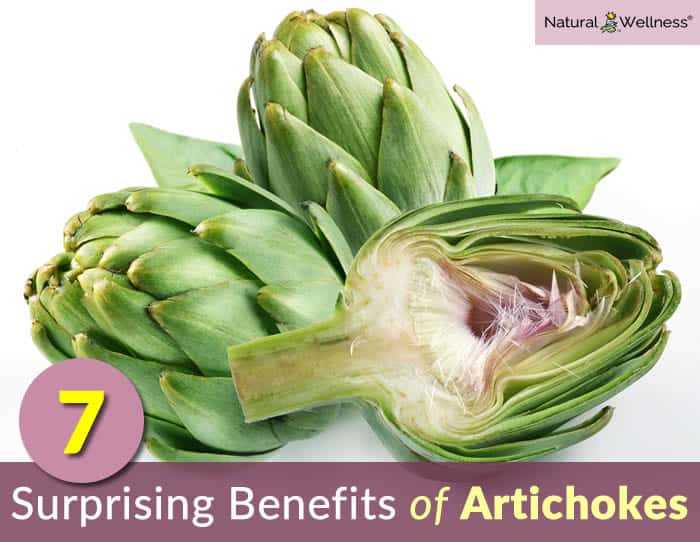

Artichoke, or Cynara scolymus, is a relative of milk thistle and has traditionally been used to treat a variety of digestive complaints and liver conditions. Cynarin is the artichoke’s active ingredient. We typically eat the bud (the edible portion of the plant before the flowers come into bloom), or heart of the artichoke, and it can be tough and slightly bitter tasting.
The 7 Unexpected Benefits of Artichokes
- Liver Function and Bile Flow. Artichoke extract works well when combined with milk thistle to improve liver function, as it is a powerful cholagogue – an agent that promotes the flow of bile. It also decreases the oxidation of liver cells and has been demonstrated to be useful in managing gallbladder problems.
- Digestion. Artichoke has been shown to improve digestive complaints such as irritable bowel syndrome (IBS), heartburn, indigestion, nausea and stomach pains.
- Kidney Function. Artichoke can improve kidney function, and can be used to combat edema.
- Lowers Cholesterol. Studies have shown that artichoke reduces cholesterol by as much as 20%, including a significant reduction in LDLs and triglycerides.
- Managing Diabetes. Blood sugar levels show improvement when diabetics take artichoke, making it useful in managing diabetes.
- Fiber. Artichoke hearts are high in fiber, with one artichoke providing about 10.3 grams of dietary fiber. A diet high in fiber can help your bowel health, lower cholesterol levels, and help control blood sugar levels.
- Anti-Inflammatory. Artichokes are anti-inflammatory and contain antioxidants, making them an excellent choice when managing any inflammation-based condition or disease.
Editor’s Note: Milk Thistle with Artichoke & Turmeric, which contains European standardized milk thistle, can improve and support your liver and gallbladder function. This dynamic supplement helps repair and replace your damaged liver cells, reduce inflammation, remove toxins, and maintain healthy bile production. Learn more about Milk Thistle with Artichoke & Turmeric.




